Optimizing Vape Temperatures for Cannabis Flower: Strain-Specific Guidance for Anxiety Relief
Discovering the ideal cannabis strains for anxiety relief involves understanding the unique profiles…….
Anxiety, a pervasive and often debilitating mental health condition, affects millions worldwide, leading many to seek alternative treatments. Enter cannabis, a multifaceted plant with a rich history of medicinal use. In recent years, the discussion around cannabis as a potential anxiolytic (anxiety-reducing) agent has gained significant traction. This article aims to provide an in-depth exploration of the “best cannabis strains for anxiety,” delving into their therapeutic properties, global impact, and the complex landscape surrounding this innovative approach to mental health management.
Definition: Best cannabis strains for anxiety refer to specific varieties of cannabis that have been cultivated or selected for their potent anxiolytic effects. These strains contain unique chemical profiles, particularly focusing on cannabinoids like tetrahydrocannabinol (THC) and cannabidiol (CBD), known for their interaction with the endocannabinoid system in the human body, which plays a crucial role in regulating mood, stress, and anxiety.
Core Components:
Cannabinoids: THC and CBD are the primary cannabinoids responsible for the anxiolytic properties. THC, known for its psychoactive effects, can influence serotonin receptors, potentially reducing anxiety. CBD, non-psychoactive, interacts with various receptors, including those involved in stress response regulation.
Terpenes: These aromatic compounds contribute to the unique flavors and potential therapeutic effects of cannabis strains. Terpenes like myrcene and linalool have anxiolytic properties and can enhance the overall calming effect of cannabinoids.
Historical Context:
Cannabis has been used for medicinal purposes for centuries, with ancient cultures recognizing its ability to soothe anxiety and promote relaxation. However, modern research into cannabis’ therapeutic potential has accelerated in recent decades, driven by advancements in analytical techniques and growing interest in alternative medicine. The study of cannabis as a treatment for anxiety gained significant momentum in the 1970s and 80s, leading to numerous clinical trials and scientific investigations.
Cannabis’ impact on managing anxiety is not confined to any single region; it has captured global attention and sparked interest in various forms:
North America: The United States, Canada, and Mexico have been at the forefront of cannabis research and legal reform. Studies in these countries have explored the use of cannabis for anxiety disorders, with promising results. For example, a 2019 review published in Cannabis and Cannabinoid Research analyzed multiple studies and concluded that cannabis can effectively reduce anxiety and improve quality of life.
Europe: Many European countries have progressive cannabis policies, allowing for medical cannabis access. The UK, Germany, and the Netherlands have seen an increase in clinical trials examining cannabis’ role in treating anxiety and stress-related disorders.
Asia: Countries like Israel, Japan, and South Korea are making significant strides in cannabis research. In 2021, Israel’s first medical cannabis law came into effect, providing a structured framework for patients to access cannabis as a treatment option, including for anxiety.
South America: Brazil and Argentina have legalized medical cannabis, opening doors for research and patient access. These countries are exploring the potential of local cannabis strains in treating various mental health conditions, including anxiety.
The global cannabis industry has experienced exponential growth, driven by changing policies, increasing acceptance, and expanding medical applications. In the context of best cannabis strains for anxiety, several economic factors come into play:
Market Size: According to a report by Grand View Research, the global medical cannabis market size was valued at USD 23.5 billion in 2021 and is expected to expand at a CAGR of 28.4% from 2022 to 2030. This growth indicates a growing demand for cannabis-based treatments, including those for anxiety.
Investment Trends: The legal cannabis market has attracted significant investment, with venture capital firms and pharmaceutical companies leading the way. Investors recognize the potential of cannabis as a legitimate treatment option, particularly for underserved mental health conditions like anxiety disorders.
Product Diversification: As the industry matures, product innovation is on the rise. Cannabis producers are creating specialized strains, extracts, edibles, and topicals tailored to specific anxiety symptoms and patient preferences. This diversification caters to a diverse range of consumers seeking natural anxiolytic options.
Technological innovations have revolutionized cannabis research and delivery systems, opening new avenues for exploring its therapeutic potential in treating anxiety:
Cannabinoid Analysis: Advanced analytical techniques, such as gas chromatography-mass spectrometry (GC-MS), allow for precise identification and quantification of cannabinoids in cannabis strains. This enables researchers to develop specific formulations with controlled dosages, ensuring optimal anxiolytic effects.
Genetic Engineering: Recent advancements in genetic engineering have made it possible to selectively breed or even engineer cannabis plants with enhanced cannabinoid profiles. This technology aims to create strains with more potent and targeted anxiolytic properties while minimizing potential side effects.
Nanotechnology: Nanoparticle delivery systems are being explored to enhance the bioavailability of cannabinoids. These innovative methods can improve the effectiveness of cannabis-based treatments for anxiety by ensuring better absorption and targeting specific cells or brain regions.
Several cannabis strains have gained popularity among patients seeking natural anxiety relief. Each strain offers a unique combination of cannabinoids and terpenes, contributing to its therapeutic profile:
Acai Berry (Indica Dominant): Known for its high CBD content, Acai Berry is popular for its calming effects without the psychoactive “high.” The strain’s terpene profile includes myrcene and limonene, which enhance its anxiolytic properties.
Granddaddy Purple (Indica Hybrid): With a strong THC to CBD ratio, Granddady Purple provides a relaxing and euphoric experience. Its high content of the terpene tiglineol has been linked to reduced anxiety and improved sleep quality.
Lemon Haze (Sativa Dominant): This vibrant strain offers a bright and uplifting effect due to its high limonene content. Lemon Haze is popular for alleviating stress, anxiety, and depression while maintaining clarity of mind.
Blue Dream (Indica Hybrid): A highly sought-after strain, Blue Dream is known for its potent THC levels and calming effects. Its unique terpene profile, including myrcene and linalool, contributes to its reputation as an effective anxiolytic.
While anecdotal evidence and patient testimonials are compelling, scientific research is crucial in understanding cannabis’ role in managing anxiety disorders. Numerous studies have explored cannabis’ anxiolytic potential, yielding valuable insights:
A 2015 review published in Current Neuropharmacology suggested that cannabinoids may reduce anxiety by interacting with various receptors involved in the stress response, including the serotonin 5-HT1A receptor.
Research published in Neuropsychopharmacology (2019) indicated that cannabis can modulate fear responses and reduce anxiety-like behaviors in animal models.
A randomized controlled trial conducted by the University of California, Los Angeles (UCLA), found that a THC-rich cannabis extract significantly reduced social anxiety in patients with social anxiety disorder (SAD).
A 2021 meta-analysis published in JAMA Network Open analyzed multiple studies and concluded that cannabis use was associated with a reduction in anxiety symptoms, particularly in patients with generalized anxiety disorder (GAD).
The legal status of cannabis varies widely across countries and regions, presenting both opportunities and challenges for those seeking access to best cannabis strains for anxiety relief:
Medical Cannabis Programs: Many countries have established medical cannabis programs, allowing qualified patients to obtain cannabis as a treatment option. These programs often include specific guidelines for qualifying conditions, including anxiety disorders.
Recreational Use Legalization: In regions where recreational cannabis use is legal, patients may have easier access to a variety of strains. However, the lack of regulation can lead to inconsistent cannabinoid profiles and potential quality issues.
Regulatory Hurdles: The evolving nature of cannabis legislation presents challenges for both patients and producers. Changing regulations can impact product availability, pricing, and patient eligibility. Striking a balance between access and public safety remains a priority for many governments.
Selecting the most appropriate cannabis strain and delivery method is essential for an effective anxiolytic experience. Patients should consider the following:
Cannabinoid Ratio: The ideal ratio of THC to CBD varies from person to person. Some patients prefer strains with higher CBD content for its calming effects without psychoactive effects, while others may benefit from THC’s anxiety-reducing properties in combination with CBD.
Terpene Profile: Terpenes can significantly influence the overall effect of a strain. Patients seeking anxiety relief might want to look for strains with myrcene, linalool, and limonene, known for their calming and stress-relieving properties.
Delivery Methods: Different consumption methods offer varying experiences. Smoking or vaping provides rapid effects but may not be suitable for all patients. Edibles and topicals offer longer-lasting effects and are often preferred by those seeking consistent anxiety relief throughout the day.
The field of cannabis research is constantly evolving, and the future holds promising possibilities for managing anxiety disorders:
Personalized Medicine: Advances in genetic testing and cannabinoid profiling may enable personalized treatment approaches, tailoring strains and dosages to individual patients’ needs.
Pharmacogenomics: Understanding how genetic variations influence drug metabolism can lead to more effective cannabis-based treatments, ensuring optimal efficacy and minimizing side effects.
Improved Delivery Systems: Innovations in delivery methods, such as advanced vaporizers, sublingual tinctures, and transdermal patches, can enhance convenience and patient compliance while optimizing cannabinoid absorption.
Continued Research: Further clinical trials and research will help refine our understanding of cannabis’ role in anxiety management, leading to evidence-based guidelines for healthcare professionals.
In conclusion, the exploration of best cannabis strains for anxiety relief offers a promising natural alternative or adjunctive therapy for those seeking to manage their condition effectively. As research continues to evolve, patients, healthcare providers, and policymakers must navigate the complex landscape of cannabis legislation while harnessing the potential therapeutic benefits of this versatile plant.
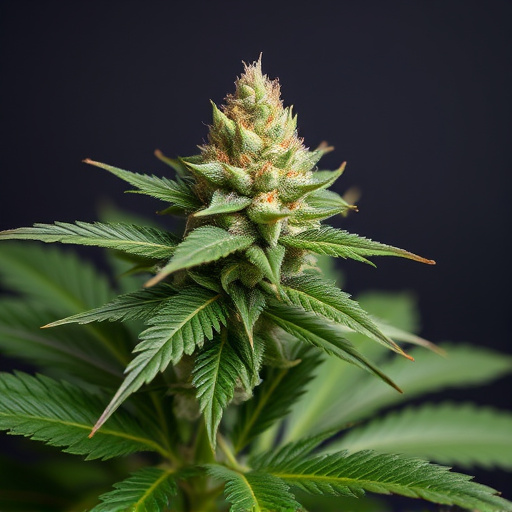
Discovering the ideal cannabis strains for anxiety relief involves understanding the unique profiles…….
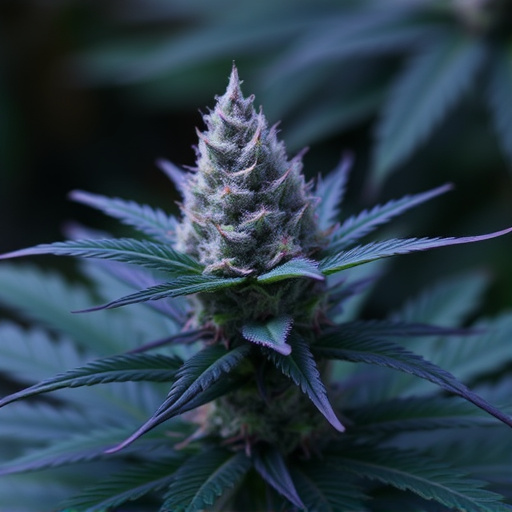
The unique aromas of cannabis flowers are driven by terpene-cannabinoid interactions, creating scent…….
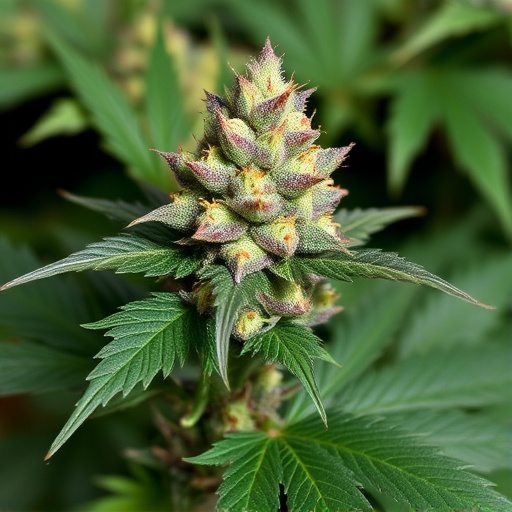
Cannabis users often turn to specific sativa strains like Blue Dream and Jack Herer for their abilit…….
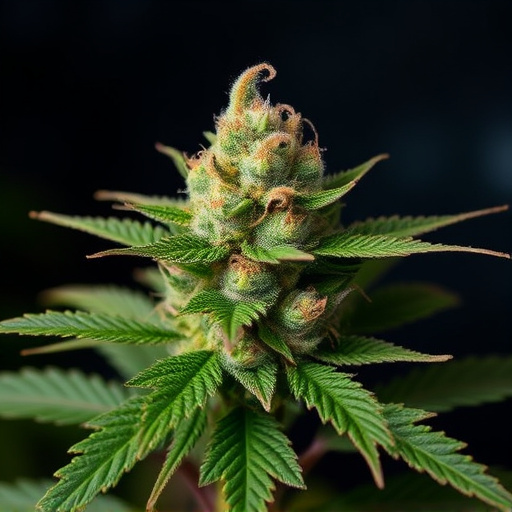
Cannabis is gaining recognition as a natural remedy for anxiety, with specific strains containing TH…….
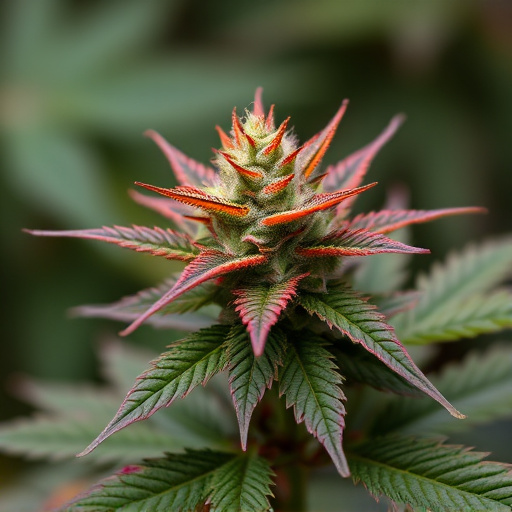
Cannabis, with its cannabinoids THC and CBD, offers relaxation and stress relief. Strains high in no…….
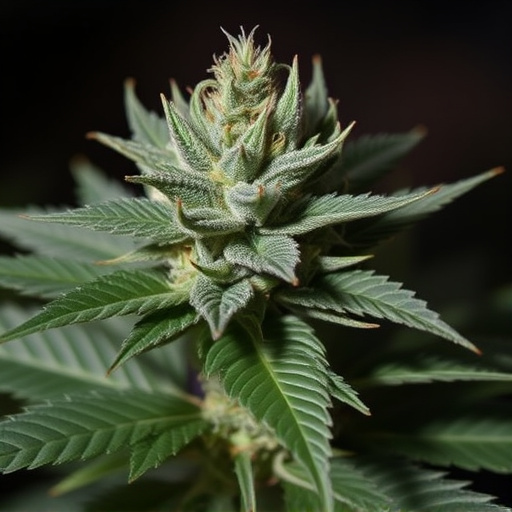
Cannabis hybrids, like Lavender, Pineapple Express, Granddaddy Purple, and Blue Dream, are popular f…….
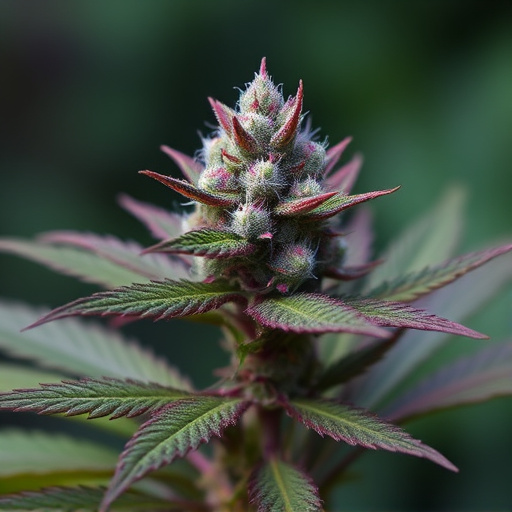
The genetics of cannabis, particularly cannabinoid profiles like THC and CBD levels, significantly i…….
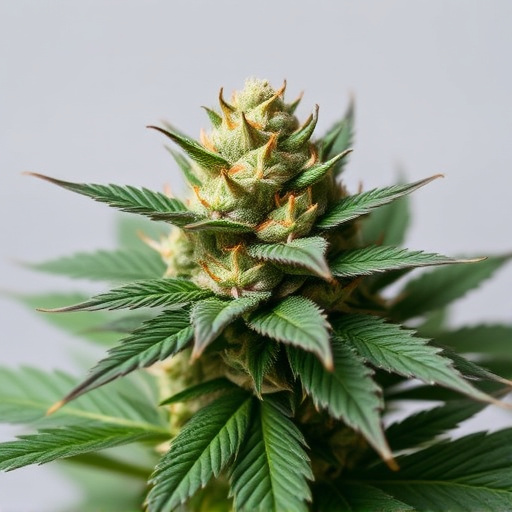
Sun-Grown vs Indoor Cannabis for Anxiety Relief: Sun-grown cannabis offers broader genetic diversity…….